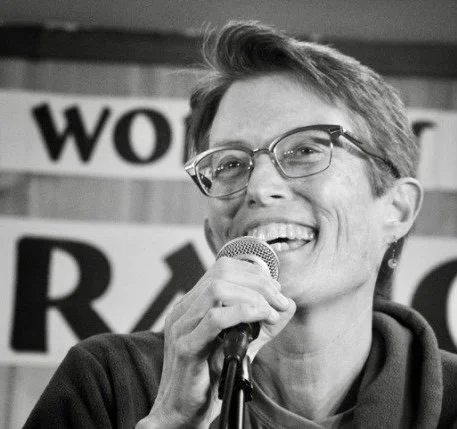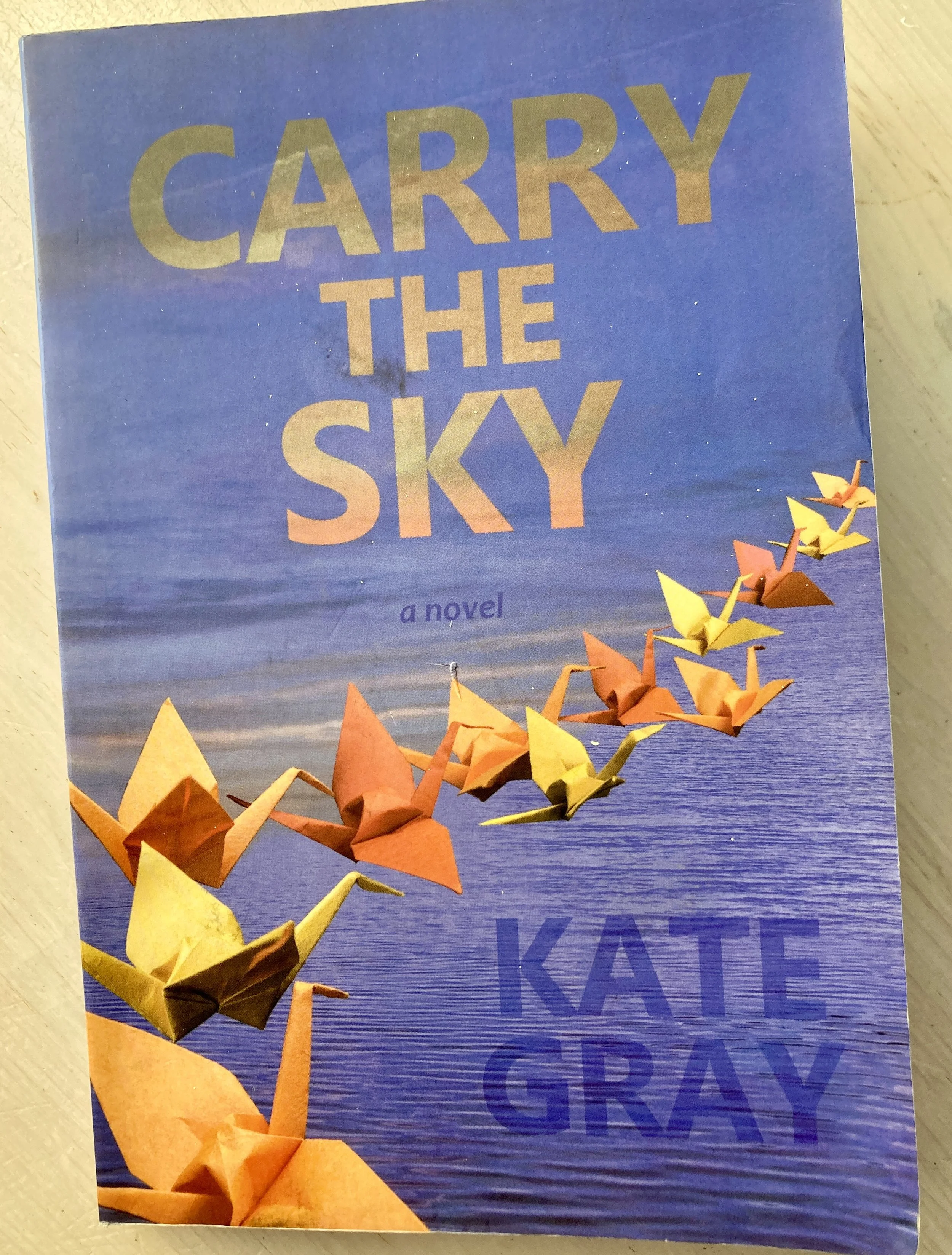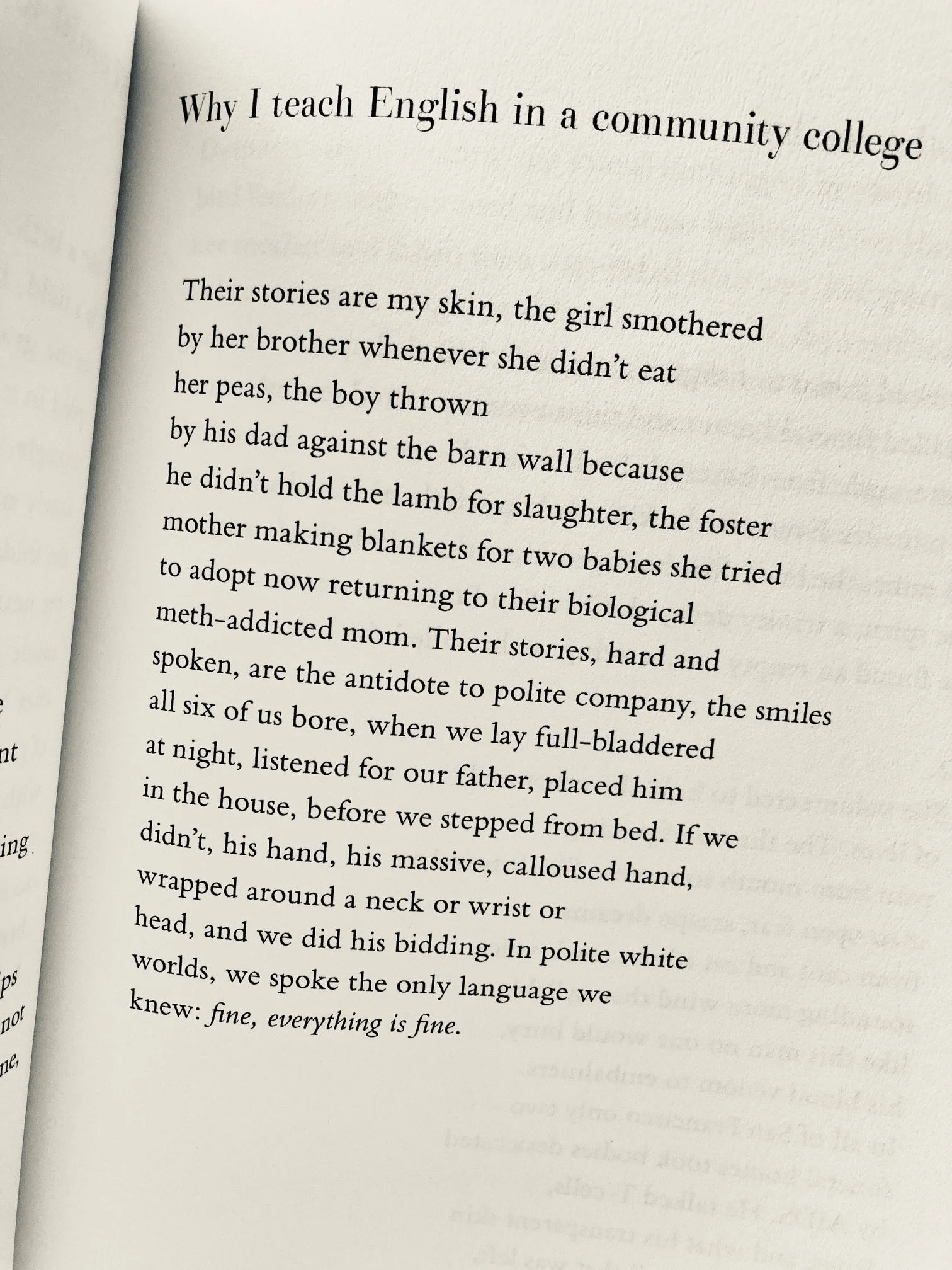photo by Jean Rosenbaum
“Writing in community is my kind of church.”
— Kate Gray
Welcome to Fast Five, an occasional series in which I ask my favorite writers five questions as a way to open the door to know more.
Kate Gray is author of the novel What We Carry; as well as two poetry chapbooks and two full-length collections: For Every Girl, published in 2019, and Another Sunset We Survive, a finalist for the Oregon Book Award.
For 25 years she worked as a writing instructor at Clackamas Community College in Oregon. She continues to encourage writers in individual and group settings — from correctional facilities to online writing salons where she serves as volunteer, collaborator, and coach.
She and her partner live in Washington’s Olympic Peninsula.
“What do I love to do? Write. Talk about writing. Dive into writing with others,” says Kate. “I’ve witnessed writing transform people, open them like time-lapse photographs of blossoms.”
1.
Why write?
Writing is resistance. At a young age a teacher gave me a journal with the following quote in it:
“To be nobody but yourself in a world which is doing its best, night and day, to make you everybody else means to fight the hardest battle which any human being can fight; and never stop fighting.”
I believe fiercely in this e.e. cummings quote, and for me, writing has always been my way to discover myself, grow, connect with others, create healing, community, and grace. Now, perhaps more than ever, we need to write and to resist the silencing, lies, denial, and destruction. We need the voices of love, joy, memory, the voiceless, the ones who sing in wind and water. We must write a new world.
From For Every Girl: New & Selected Poems by Kate Gray
2.
What do you enjoy about writing in community? How does this fill you?
Writing in community is my kind of church. I experience a collective effervescence, a communion with the sacred, and a sense of powers beyond ourselves. I’ve written in many, many different environments, from American Legion Posts to burlesque halls to Oxford University to monasteries.
When volunteering for Write Around Portland in Coffee Creek Correctional Facility, I heard the writers tell me they experienced the only quiet time they had in their week while we were writing. Think about that . . . They heard a clock tick only eight minutes a week.
During the time we had together over eight weeks, they also experienced a trust some had never had before, because we didn’t criticize or shame. We held up to the light what was good even if they couldn’t see it. They learned to see and value other women’s stories, and some learned to value their own. Being a part of their gaining empathy, trust, and confidence was so powerful for me that it was a big reason I decided to retire from academia.
3.
What’s the best — or worst — writing advice you’ve received?
One of the worst things a coach once did was monetize what she thought my unfinished manuscript would sell for. My dreams became tied to money rather than good storytelling.
One of the best lessons came from Ron Carlson, the fiction writer, who described his sons climbing one of the bunkers in a state park on the Oregon Coast. One son lifted up a hatch and shouted, “Dad, don’t you just love not knowing where you’re going to go?” and he jumped into the dark (and didn’t hurt himself).
If you let it, writing is like that, an adventure, a path you can follow with endless surprise and delight.
4.
What book (or poem) do you return to again and again?
I return to Robert Frost’s poem, The Star-Splitter, to learn to be a good neighbor; Jimmy Santiago Baca’s I am offering you this poem, to learn gratitude and generosity; Danez Smith’s a note on the body to learn new ways to love; Lucille Clifton to know joy, Joy Harjo to know patience, Li-Young Lee to know family, Sharon Hashimoto to understand patriotism, Brionne Janae to tiptoe toward forgiveness, and so many others.
5.
I’m a word collector, and keeping a running list of favorites? What are yours?
Some favorite words:
murmuration
inchoate
hallelujah
boom.
Excerpt from For Every Girl: New & Selected Poems by Kate Gray





